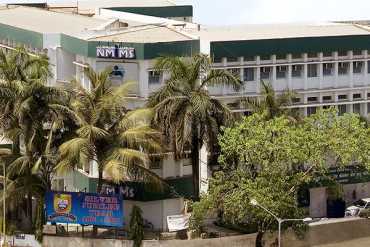 | « Back to article | Print this article |
Why are actuarial science grads dropping out of college?
The 15-odd students of MBA in actuarial science programme at Mumbai-based Narsee Monjee Institute of Management Studies (NMIMS) will be the last ones pursuing this course at the institute.
NMIMS has decided to discontinue the programme.
Debashis Sanyal, dean of the b-school at NMIMS, says: "The number of jobs in the insurance sector has come down significantly. Especially for actuaries, the employment opportunities have not been high. Therefore, the number of applications for this course also dropped, due to which, we've decided to do away with it."
Sanyal added job opportunities for these professionals in other sectors is not high in India unlike other countries.
Not just NMIMS, institutes across India offering programmes in actuarial sciences have been witnessing a mismatch in the supply of candidates to insurance companies.
According to institutes, though a lot of candidates join the course, most either leave mid-way to take a job or are simply not able to clear the examinations to become a professional actuary.
Sanchit Maini appointed actuary and chief risk officer at Max Life Insurance, has a different view.
"About a decade ago, there were very few opportunities available for this discipline However, now the demand has increased and so have the salaries. But, individuals do not understand the intricacies of the profession. Hence, they end up leaving the job," he says.
According to Maini, there are not enough institutes offering actuarial programmes. "Though there is an oversupply at the entry level, there is a supply gap at the senior, qualified actuarial level."
An actuary in an insurance company helps assess a risk and price it accordingly.
Apart from insurance companies, accounting firms and pension firms also employ actuaries. Maini says now business process outsourcing ( BPO) and Knowledge process outsourcing ( KPO) are employing actuaries in the back-office for insurance.
To be a qualified actuary, one needs to be accredited by a body like the Institute of Actuaries of India, apart from pursuing courses in actuarial sciences from an institute.
This is done after a prospective candidate clears all 15 papers in actuarial science and gets a fellowship. However, companies also appoint individuals who have passed 10 out of 15 papers as an associate in the actuarial department.
As part of the course, an actuarial student should mandatorily work as an intern in the actuary department of a company. They have to complete their academic course and also prepare for the professional qualification while working.
This, say experts, puts a lot of pressure on the students and they end up leaving the profession.
Actuarial professionals put the dropout rate at 40-45 per cent, which includes both dropouts from institutes and entry level dropouts from companies.
While an individual may be taken in after clearing two to three papers of the professional examination, they are offered a permanent position only after passing the other papers.
Quantitative methods, mathematics and statistics are essential part of the examination. According to estimates, only about 45 to 50 per cent of candidates are able to qualify to become a professional actuary.
Given the low pass-out ratio, various estimates say that there would only be about 300 fully qualified (those who have cleared all 15 papers) in India, with yearly additions of 40 to 45 professionals.
Vepa Kamesam, managing director of the Institute of Insurance and Risk Management (IIRM), Hyderabad, explained that there is still room for a lot of youngsters to come to the profession. Set up jointly by the Insurance Regulatory and Development Authority ( Irda) and the Andhra Pradesh government, IIRM offers a post graduate diploma in actuarial sciences.
The course is of 15 months duration and spread over three semesters, with one-and-a-half month's internship.
Kamesam says IIRM takes only those students who are focused to become an actuary.
"We will offer this course as mandated by the regulator even if the class strength is in single digits," he adds. According to him, there are job opportunities for students who pass two to three papers of the professional exam.
Such job opportunities, however, act as a dampener because many students leave the programme mid-way to start working.
Employers, too, face the problem of actuaries changing jobs too quickly.
"Due to scarcity of actuaries, individuals tend to switch companies quickly as they are paid well," says Kamalji Sahai, former managing director and CEO of Star Union Dai-ichi Life Insurance.
Training is a crucial part of becoming an actuary.
According to M P Vaidya, senior advisor at Asean Institute of Insurance and Risk Management, the dropout rate is high because the examination is difficult to pass. He says that industry players should conduct adequate training for prospective personnel on their actuary team to cope with the complexities of the demanding profession.
To meet the demand, other professional institutes are coming forward to offer training. National Insurance Academy (NIA), Pune, is looking to offer training programmes for actuaries.
According to an NIA faculty member, the training process would ensure that candidates pass all the papers, since the passing ratios after the initial two to three papers have dropped significantly.

